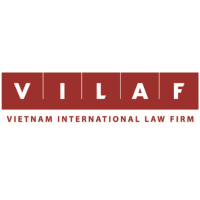

Country head of legal | AppleTree Service





Nguyen Ngoc Ha
Country head of legal | AppleTree Service
Team size: Two
What are the most significant cases and transactions that your legal team has recently been involved in?
My current company is headquartered in Singapore with French capital ownership, known as Apple Tree Group (ATG), the holding company. ATG focuses on business operations in 10 countries in Southeast Asia. We have 15 subsidiaries established in Vietnam, operating across the Import, Distribution, Retail and Tourism and Hospitality industries. My team is tasked with handling all the legal affairs of these subsidiaries in Vietnam.
Concerning the business operations in Vietnam, it can be categorised into two main groups. Exo Group, a highly experienced professional in travel and hospitality, and Annam Group, built as a premium importer and distributor of high-quality FMCG products from around the world. Annam Group serves as an authorised principal for many globally respected brands, delivering products to all retail channels in Vietnam. Additionally, there are other groups of companies within our portfolio that perform logistics and IT services. With the aim of transforming these groups’ companies into the most sustainable models in the long run, one of the crucial tasks of the team is to restructure these subsidiaries. We have proposed problem-solving restructuring strategies to avoid excessive amendment licensing, mitigate risks, and achieve cost savings.
One of the most significant achievements among those restructuring procedures is that our team successfully performed and completed the conversion of a loan from an overseas parent company, of around US$2.1 million, into contributed capital for the subsidiary. Meanwhile, the Vietnamese legal system has not provided a comprehensive regulation on the method of converting a loan into contributed capital. The conversion of a loan into contributed capital for a foreign-invested company is overseen by at least two major state authorities, namely the State Bank of Vietnam and the corporate and investment management authority. This has resulted in inconsistent procedures and documentation. Consequently, we faced a series of complicated and time-consuming registration procedures with numerous requests for clarifications and explanations from these state authorities for 11 months. Finally, after overcoming these challenges, the entire team has obtained all the requisite business licenses and approvals from the state authorities. This process was successfully concluded at the end of October this year.
Could you share an example of a time when you came up with an innovation that improved how your legal team works and did not come at a large expense?
Orienting the large sales channels that encompass both retail and distributor connections to end-users, our team has developed a range of standardised contract forms for both local and overseas suppliers and partners. Additionally, the team has compiled a comprehensive set of memos and guidelines addressing corporate compliance and the code of business ethics. These have been distributed to various functional departments within the group companies. The standardised contract forms have demonstrated significant time and cost savings, negating the need for external law firms.
How do you see the general counsel role evolving in Vietnam over the next five-ten years?
Since Vietnam has adhered to the WTO, the Vietnamese legislative system has witnessed significant changes and amendments to adapt to WTO commitments. Thus, the role of an in-house lawyer is no longer limited to managing the legal risks associated with the business they work within; now, they need to partner with the business, understand its issues, and produce viable and tangible solutions. Therefore, to be an effective in-house lawyer over the next five to ten years, an in-house lawyer needs to add value to the company’s business in several ways, providing a responsive service, delivering technical know-how in a way that has a transformative impact on the business, offering commercially astute advice, and contributing to developing the strategic direction of the business within the relevant legal frameworks. Lawyers who demonstrate the ability to be business enablers and make commercially savvy decisions arguably find it easier to connect with the business teams and will be more successful in their careers.
What are some of the main trends impacting your industry in Vietnam?
Among the existing subsidiaries, Annam Group companies play an extremely vital role in the retail industry, operating 15 retail supermarkets nationwide. With the development of technology and the digital age, especially after the Covid pandemic, the need for online shopping has become extremely popular and convenient in Vietnam. Thus, the retail market is no longer just about accessibility but also about a frictionless shopping experience, both online and offline, to meet customer expectations and technological advancements.
Omnichannel retail, the use of AI, same-day delivery, social commerce, and interactive retail are a few of the significant retail trends. Therefore, in my view, business retail investors must consider these trends when making decisions about their store locations, inventory management, and marketing campaigns.
Country head of legal | Appletree Service Group
Country head of legal | Appletree Service Group